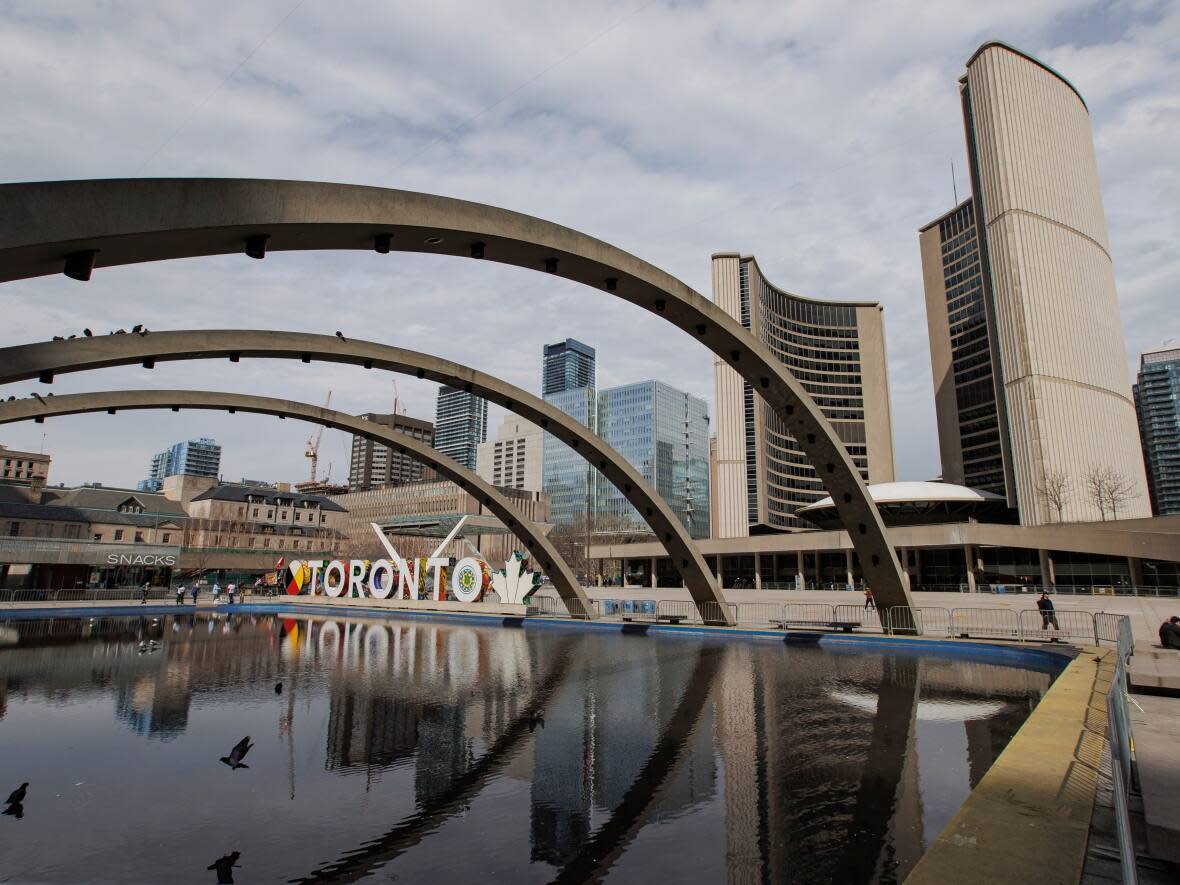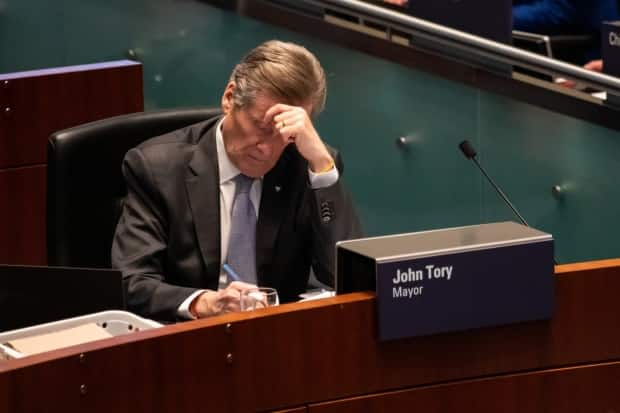Toronto's mayoral race has begun and experts predict it's about to get fiery

The first week of Toronto's mayoral byelection was packed with campaign events and policy proposals, but experts predict that will give way to fiery attacks as candidates fight to gain ground.
The official campaign is less than a week old and it's already drawn a pack of over 30 contenders to replace John Tory. But experts closely following city politics say that no one has the name recognition of Toronto's former mayor. That means they'll need to spend big and make bold policy statements to get on the radar of voters.
"I'd say fasten your seat belts, this is going to be a mayoral election like no other," said Toronto Metropolitan University political science professor Myer Siemiatycki.
"And I think there'll be twists and turns."
Tory resigned suddenly in February after admitting to an affair with a former staffer. His shocking departure has triggered a short byelection which kicked off on Monday with the opening of candidate registration. But the next few weeks will be critical for candidates as they try to edge into the lead and force other mayoral hopefuls who might siphon away their support.
Candidates jockeying to break away from pack
Former city councillor Joe Mihevc said right now candidates are trying to determine if they can make a serious run. Some may find they can't do it and drop out before the May 12 registration deadline.
"This period is like a Democrat or Republican (primary) in the US, where you're just kicking the tires, you're seeing who's got what and you're just still playing the field," he said. "It's not really that race to the finish line."
But Mihevc said he expects even the early campaigning could get nasty over the next few weeks as some of the main candidates try to knock rivals out of the race. They'll want to eat up their support and clear a path to the mayor's office, he said.
"It's going to get aggressive, in fact, distastefully aggressive," Mihevc said. "You [can] just see it and start to smell it even at this point. And that's, frankly, unfortunate."
Zachary Spicer, an associate professor of political science at York University, said he too thinks the campaign could be rough. With a packed field and just a few months to make an impression, some candidates will resort to attacks to get attention, he said.
"With the speed that you have to knock opponents out, I think it's going be quite nasty," he said.
Spicer expects the first few weeks of the race to be intense as candidates announce policy, find wedges between themselves and others in the race, and build their name recognition. Then, the later half of the campaign will focus on a handful of front-runners, he said.
"As the campaign progresses, we may begin focusing on two or three that have a legitimate shot to win," he said.

Strategists, army of volunteers and money needed
Andrew Tumilty, a senior consultant with Enterprise Canada, said candidates will need well–organized campaign machines behind them to mount a viable campaign. That means experienced strategists, volunteer staff to knock on doors, and the capacity to fundraise, he said.
"The standard thinking for the last few campaigns is that you need to be able to fundraise somewhere in the neighborhood of a million dollars to run a credible campaign," Tumilty told CBC Radio's Metro Morning this week.
"And we have a shorter timeframe, considerably, this time. But you still need to reach almost the same number of people in that time. So it might be a little bit less, but probably not much."
Tumilty, who was the war room director for John Tory's last two campaigns for mayor, said candidates will be trying to find an issue that they can claim as their own that resonates with voters.
Almost as many issues as candidates
This election also seems poised to be about a wide variety of issues. Public safety is top of mind for many after a string of violent attacks on the TTC. Candidates have already proposed policies to address that and tackle mental health and homelessness in the city.
The debate over whether candidates will use the so-called "strong mayor" powers that give the mayor a budget veto will continue. Toronto's fiscal position will also likely be a major issue, with a $1.5-billion budget gap looming this year.
"There are probably as many issues as there are people the race," Mihevc said.
A number of former city councillors and public figures have jumped into the byelection.
Former city councillor Ana Bailão has entered the race, as have current city councillors Brad Bradford and Josh Matlow. Former Toronto police chief Mark Saunders is in and so is Scarborough Guildwood MPP Mitzie Hunter.
Former federal MP Celina Caesar-Chavannes and journalist Anthony Furey also joined the race this week.
You can find a full list of candidates here.
Former MP and mayoral candidate Olivia Chow is said to be considering a run for the mayor's office, but has not registered.
Siemiatycki said the large field makes the race unpredictable. A candidate could win by running a very narrowly focused campaign based on one or two of main issues. And they could do it with less than 20 per cent of the vote if this large field holds, he said.
"Each candidate is going to try, as they must, to pump themselves up as the saviour of Toronto, in some ways that will entail taking shots at other candidates," Siemiatycki said. "And I think it's going to be a pretty lively, noisy and combative campaign."


